Ancient Egyptians are known to be extremely inventive and bright people. They invented astronomy, mathematics, built the pyramids (without slaves), created the first calendar, and even introduced makeup.
Archeologists have long been so intrigued by the history of ancient Egypt that a whole new discipline was developed: Egyptology. So great was the fascination with this field of study that research and excavations led to the making of lots of movies and several series of documentaries to capture the quintessence of this magical civilization.
But this made us wonder: Do we really know everything about ancient Egypt? The answer is definitely “No”. That’s why we’ve made a list of some interesting, and surprising facts that you may not know about this magnificent civilization.
Without further ado, let’s get started!
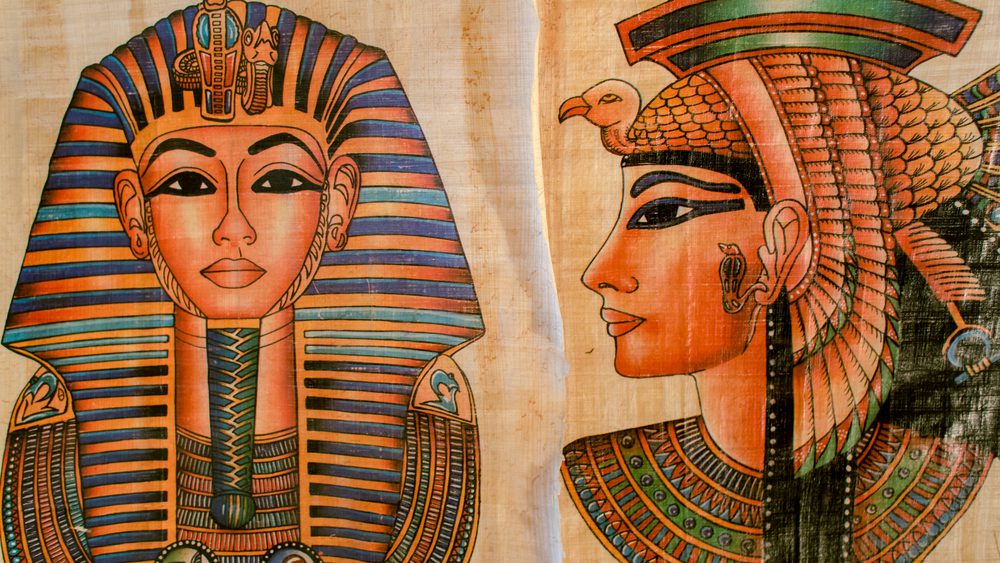
1. Cleopatra Was Not Egyptian
Along with King Tu, perhaps no personality is more associated with ancient Egypt than Cleopatra VII. However, while she was indeed born in Alexandria, Cleopatra traced her family origins all the way back to Greek Macedonians who were descended from Ptolemy I, Alexander the Great’s most trusted lieutenant. This may not be something you’ve learned in school, but it’s true.
The Ptolemaic Dynasty governed Egypt from 323 to 30 BC, and most of its rulers remained largely Greek in their sensibilities and culture. In fact, Cleopatra embraced many of her country’s ancient customs and was one of the first members of her dynasty to speak the Egyptian language.
2. Ancient Egyptians Forged One of the First Recorded Peace Treaties
For more than two centuries, the Egyptians fought the Hittite Empire for the sovereignty of territories in modern-day Syria. The antagonism between the two sides gave rise to several bloody wars, including the Battle of Kadesh, which took place in 1274 BC.
However, neither kingdom had come out as a clear victor. At least not until Pharaoh Ramses II came to power. With both the Hittites and Egyptians facing major threats from other people, in 1259 BC, the Hittite King Hattusili III and Ramses II forged a famous peace treaty.
This agreement put an end to the long conflict and stipulated that the two sides would help each other in case of a third-party attack. The Egyptian-Hittite treaty is now considered one of the first surviving peace accords in the whole world, and a replica can even be seen displayed on a wall in the United Nations Security Council Chamber in New York.
3. Ancient Egyptians Loved Board Games
Surprisingly or not, board games weren’t invented by modern people. After a long, tiring day’s work along the Nile River, Egyptians would often relax by playing board games. Some of the games they played were “Dogs and Jackals” and “Mehem”, but perhaps the most popular one was “Senet”.
This pastime dates back to 3500 BC and was played on a large board painted with 30 squares. According to the game’s rules, each player had a set of pieces that were moved across the board based on the results of the throwing sticks or dice rolls.
Historians still debate Senet’s original rules, but there is no doubt about the game’s popularity. Paintings show Queen Nefertari playing it, and pharaohs even had game boards buried with them.
4. The Pyramids Weren’t Built by Slaves.
The life of a pyramid builder was undoubtedly difficult — skeletons of workers often show signs of arthritis among other ailments — but evidence indicates that Ancient Egypt’s gigantic tombs were actually built by paid laborers rather than slaves.
These Egyptians who worked as constructors were a mix of temporary workers and skilled artisans, and some of them seemed to take great delight in their work. Graffiti found near the pyramids suggests they commonly assigned funny names to their crews like the “Friends of Khufu” or the “Drunkards of Menkaure”.
The belief that slaves built the pyramids was promoted by the Greek historian Herodotus during the fifth century BC, but most historians now consider it a myth. While the ancient Egyptians did indeed use slaves, it seems that they mostly kept them as domestic servants and field hands.
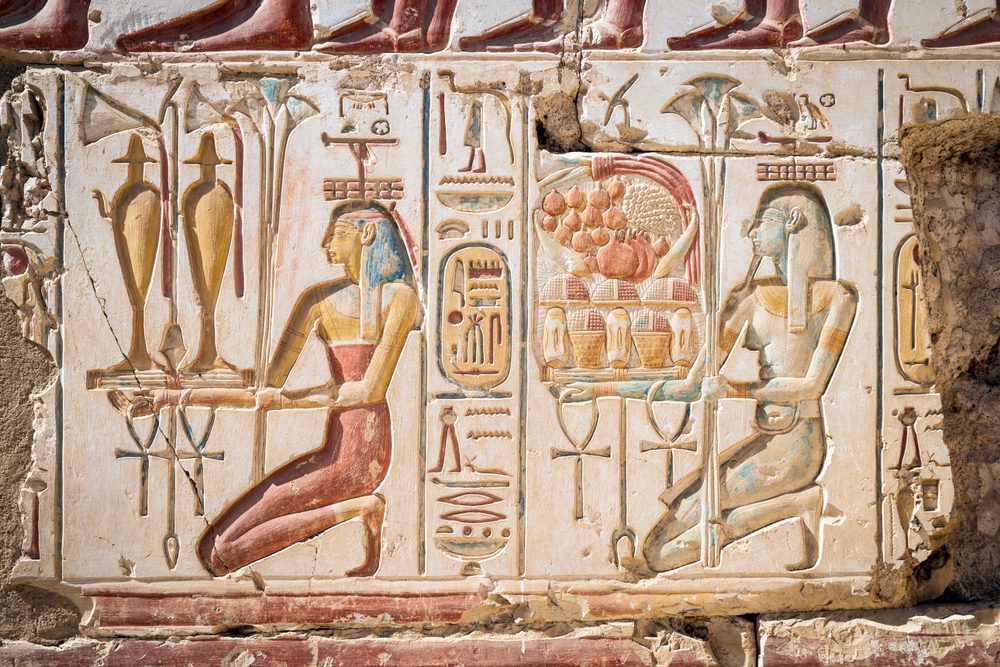
5. Ancient Egyptians Were the First Who Brewed Beer
Imagine excavating an old burial ground and running across a brewery. That’s exactly what happened in February 2021, when Egyptian officials announced that a team of American and Egyptian experts had found what may be the world’s oldest beer factory. Pharaohs, pyramids, and now beer — ancient Egypt had it all.
In fact, it seems that ancient Egyptians treated beer as a type of food — they would consume it daily and in large quantities at celebrations and religious festivals. The beverage was also essential for laborers, such as those who built the Giza pyramids, who were given a daily ration of 1⅓ gallons (about 10 pints).
6. Egyptian Women Had a Wide Range of Freedoms and Rights
While they may have been socially and publicly considered inferior to men, Egyptian women had a great deal of financial and legal independence. They could sell and buy property, make wills, serve on juries, and even enter into legal contracts.
The women of ancient Egypt didn’t typically work outside the house, but those who did often received equal pay for doing jobs that men did. Unlike ancient Greek women, who were basically owned by their husbands, Egyptian women could divorce and remarry.
Egyptian couples had something we often see in modern couples: they negotiated prenuptial agreements. These ancient contracts listed all the wealth and property the woman had brought into the marriage, guaranteeing that she would receive compensation for it if the couple decided to divorce.
7. Both Women and Men Wore Makeup
Vanity has existed since the dawn of civilization, and the ancient Egyptians were no exception. Both women and men were known to wear a lot of makeup, believing that this gave them the protection of the gods Ra and Horus.
These cosmetics were made by grinding sediments of certain minerals, such as galena and malachite, into a substance called kohl. It was then generously applied around the eyes using utensils made out of bone, ivory, and wood.
Women would also use red paint to stain their cheeks, as well as henna to color their fingernails and hands. Both men and women wore perfumes made from cinnamon, myrrh, and oil.
The ancient Egyptians believed their makeup provided magical healing properties, and they weren’t wrong: Experts have discovered that lead-based cosmetics actually helped them fight against eye infections.
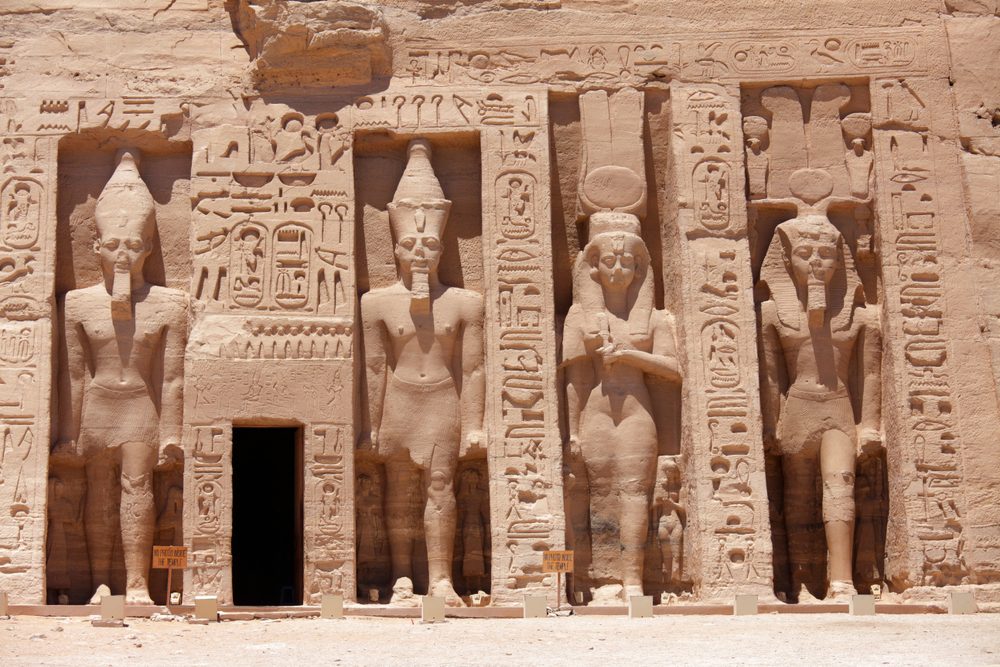
8. Egyptian Workers Were Familiar With Labor Strikes
Even though they saw the pharaoh as a kind of living deity, Egyptian workers weren’t afraid to complain about poor working conditions and protest for better ones. The most famous example occurred in the 12th century BC, during the time of pharaoh Ramses III.
This happened somehow like this: when laborers employed in building the royal tombs at Deir el-Medina didn’t receive their regular payment of grain, they organized what is now known as one of the first strikes in history.
The laborers’ protest took the form of a sit-in: they simply entered nearby funerary temples, refusing to leave until their complaints were heard. The gamble worked, and the laborers eventually received their overdue rations.
9. Ancient Egyptians Invented the Pregnancy Test
Yes, the ancient Egyptians also invented the first home pregnancy test. Obviously, their primitive version was different from what we have nowadays, but the way they used it was quite similar to the modern one.
Women would pee on wheat and barley seeds for several days, and if the seeds sprouted, it was a clear sign that she was pregnant. Ancient Egyptians would even use the same method to establish the gender of the baby as well. If the wheat seeds sprouted, the woman would give birth to a boy, and if the barley seeds sprouted, she would have a girl.
10. Some Egyptian Doctors Had Specialized Fields of Study
An ancient doctor was often a jack-of-all-trades, but experts discovered that Egyptian physicians sometimes focused on treating one part of the human body. The historian and traveler Herodotus first recorded this early example of medical specialization in 450 BC.
Writing about Egyptian medicine, he said, “Each doctor is a healer of one disease and no more… some of what pertains to the belly, some of the teeth, some of the eye.”
These specialists even had distinct names. Dentists were called “doctors of the tooth,” while the word “proctologist” literally translates as “shepherd of the anus.”
You may also like Top 7 Epidemic Diseases That Were Common in the Ancient World.

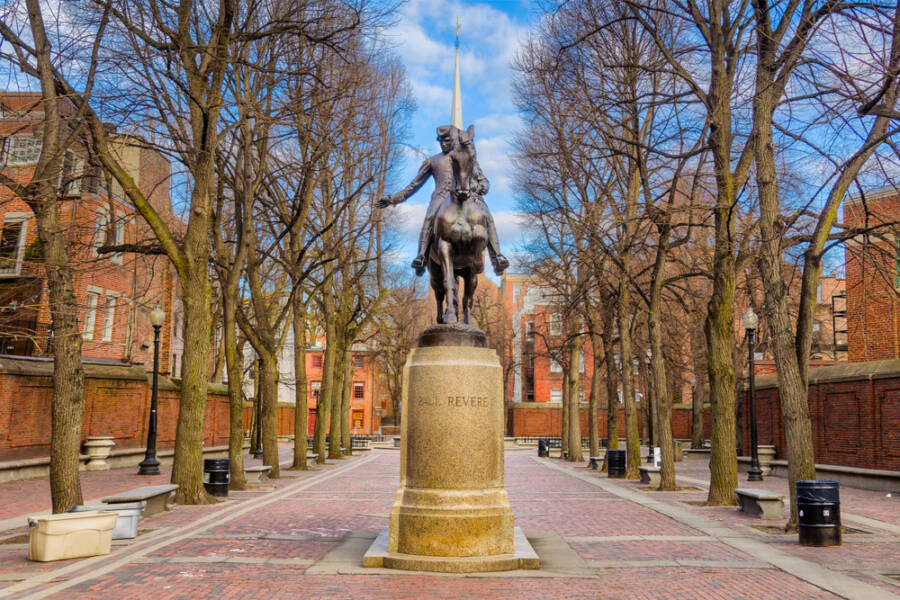

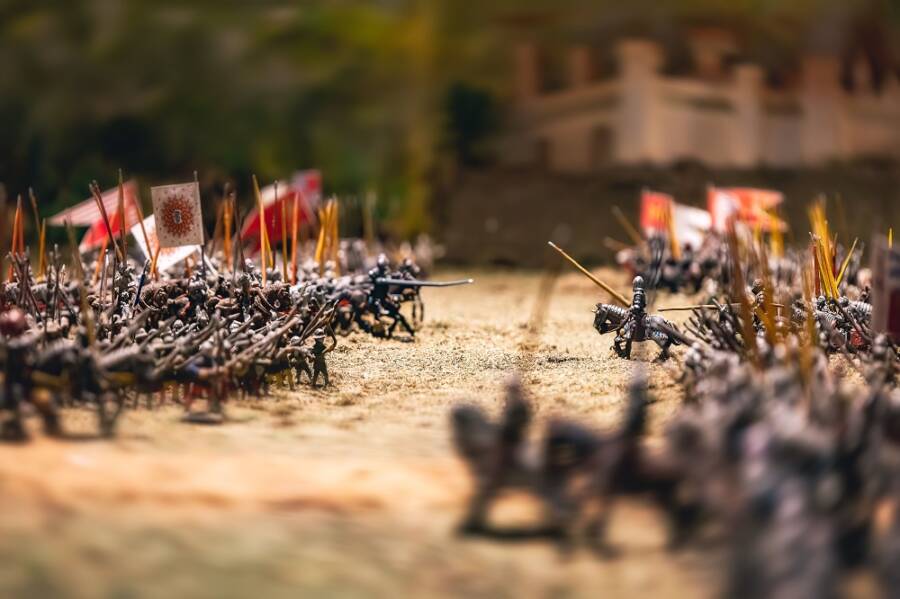
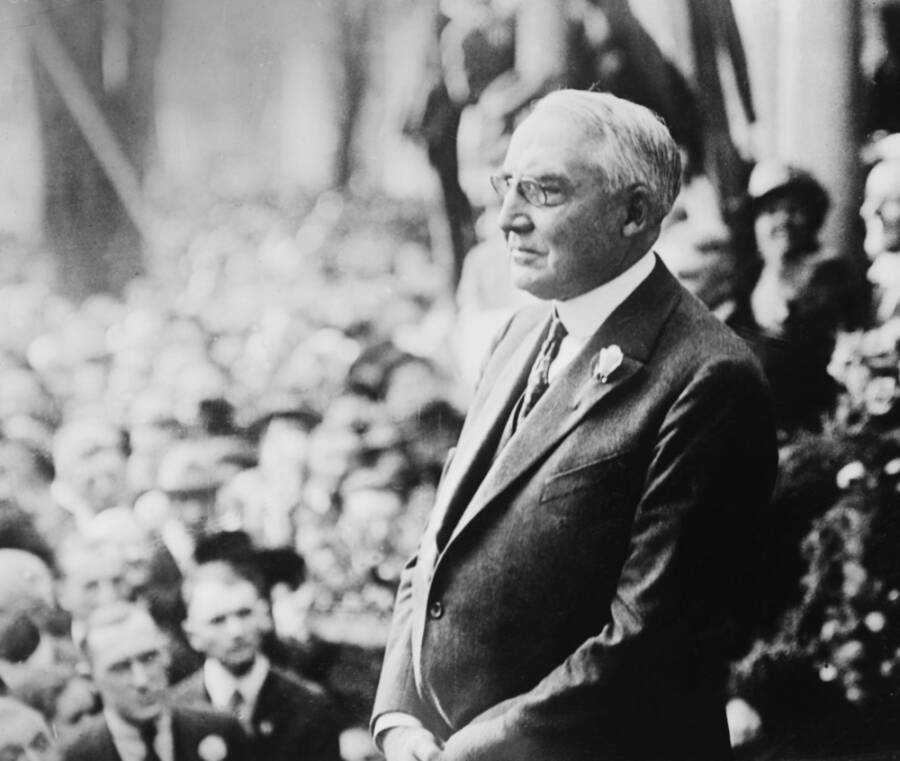
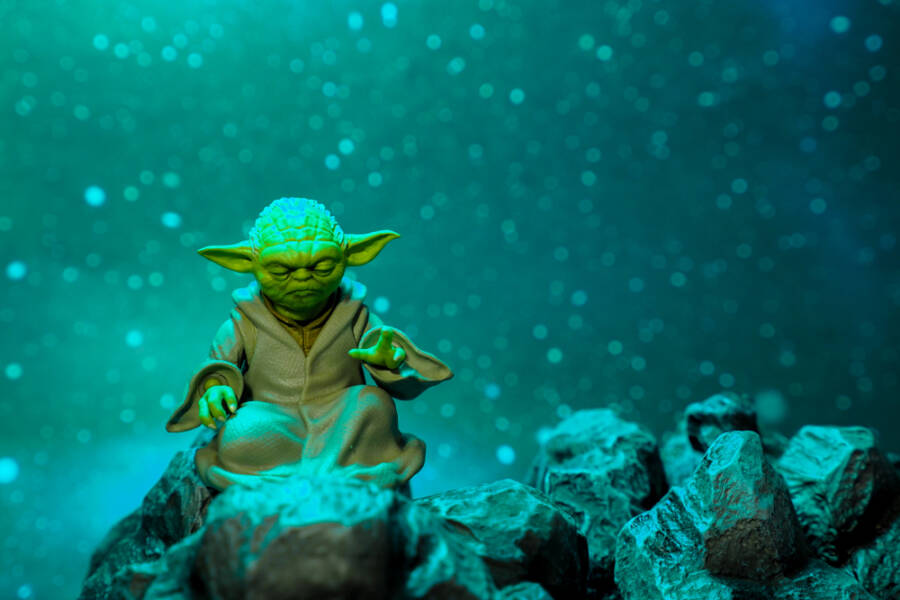
37 Responses
Novyny
Ukraine
urenrjrjkvnm
Novyny
Ukraine
urenrjrjkvnm
Novyny
Novost
urenrjrjkvnm
Novost
urenrjrjkvnm
urenrjrjkvnm
urenrjrjkvnm
urenrjrjkvnm
urenrjrjkvnm
urenrjrjkvnm
urenrjrjkvnm
urenrjrjkvnm
urenrjrjkvnm
urenrjrjkvnm
urenrjrjkvnm
urenrjrjkvnm
urenrjrjkvnm
urenrjrjkvnm
Novost
urenrjrjkvnm
urenrjrjkvnm
Novost
urenrjrjkvnm
Novost
Novost
Novost
urenrjrjkvnm
urenrjrjkvnm
urenrjrjkvnm
urenrjrjkvnm
urenrjrjkvnm